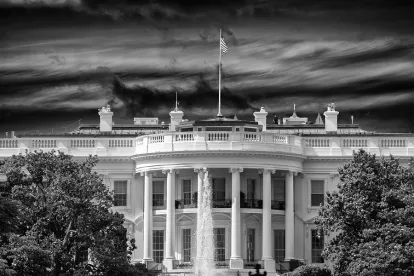As expected, the White House issued a memorandum to the heads of all executive departments and agencies within the first few hours after President Biden’s inauguration on January 20, requesting that they halt all non-emergency rulemaking and regulatory activity pending review by the new administration.
The memo asks the executive agencies, which include the U.S. Department of Labor, to immediately:
-
propose or issue no rule in any manner until a department or agency head appointed or designated by President Biden reviews and approves the rule;
-
withdraw any rules that have already been sent to the Office of the Federal Register (OFR) for publication but which have not yet been published; and
-
consider postponing by 60 days the effective date of any such rules already sent to OFR for publication (or otherwise issued) but which have not yet taken effect, “for the purpose of reviewing any questions of fact, law, and policy the rules may raise.”
The freeze does not apply to rules addressing “emergency situations or other urgent circumstances relating to health, safety, environmental, financial, or national security matters.”
The memo effectively does away with the DOL’s January 7, 2021 Final Rule on independent contractor classification, which would have reduced the number of primary factors the agency would consider when determining whether a worker is an independent contractor or an employee to two “core factors”—the nature and degree of control over the work and the worker’s opportunity for profit or loss based on initiative and/or investment. Under the new DOL test, other factors—including the amount of skill required for the work, the degree of permanence of the working relationship between the worker and the potential employer, and whether the work is part of an “integrated unit of production”—would generally only be considered when the two “core factors” don’t point to the same classification. The rule was set to take effect on March 8.
We don’t expect the Final Rule to ever see the light of day. President Biden has made clear, including in his “Empower Workers” platform, that he intends to:
-
“Aggressively pursue …and put a stop to employers intentionally misclassifying their employees as independent contractors”;
-
“[E]nact legislation that makes worker misclassification a substantive violation of law under all federal labor, employment, and tax laws with additional penalties beyond those imposed for other violations”;
-
“[B]uild on efforts by the Obama-Biden Administration to drive an aggressive, all-hands-on-deck enforcement effort that will dramatically reduce worker misclassification”;
-
“[D]irect the [DOL] to engage in meaningful, collaborative enforcement partnerships, including with the National Labor Relations Board (NLRB), the Equal Employment Opportunity Commission, the Internal Revenue Service, the Justice Department, and state tax, unemployment insurance, and labor agencies”; and
-
“[F]und a dramatic increase in the number of investigators in labor and employment enforcement agencies to facilitate a large anti-misclassification effort.”
Biden has also promised to work with Congress to establish a federal standard for independent contractor classification modeled on the “ABC test” for all labor, employment, and tax laws. The ABC test—used as the basis for several states’ laws, such as California’s AB5 legislation—is the most stringent of various tests used to determine worker status. Under California’s test, for example, a worker will be considered an employee unless the company engaging the worker establishes all of the following three prongs:
-
the worker is free from the control and direction of the company in connection with the performance of the work, both under the contract for the performance of such work and in fact;
-
the worker performs work that is outside of the “usual course” of the company’s business; and
-
the worker is customarily engaged in an independently established trade, occupation, or business that is of the same nature as the type of work performed for the company.
The DOL’s January 7 Final Rule would have made it easier for companies in states without more restrictive laws to classify service providers as independent contractors. It’s highly unlikely we’ll see another rule like it in the next four years.



 />i
/>i

